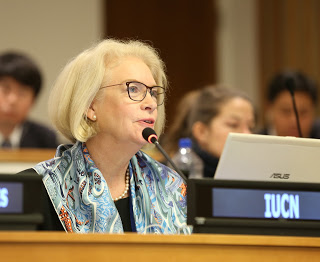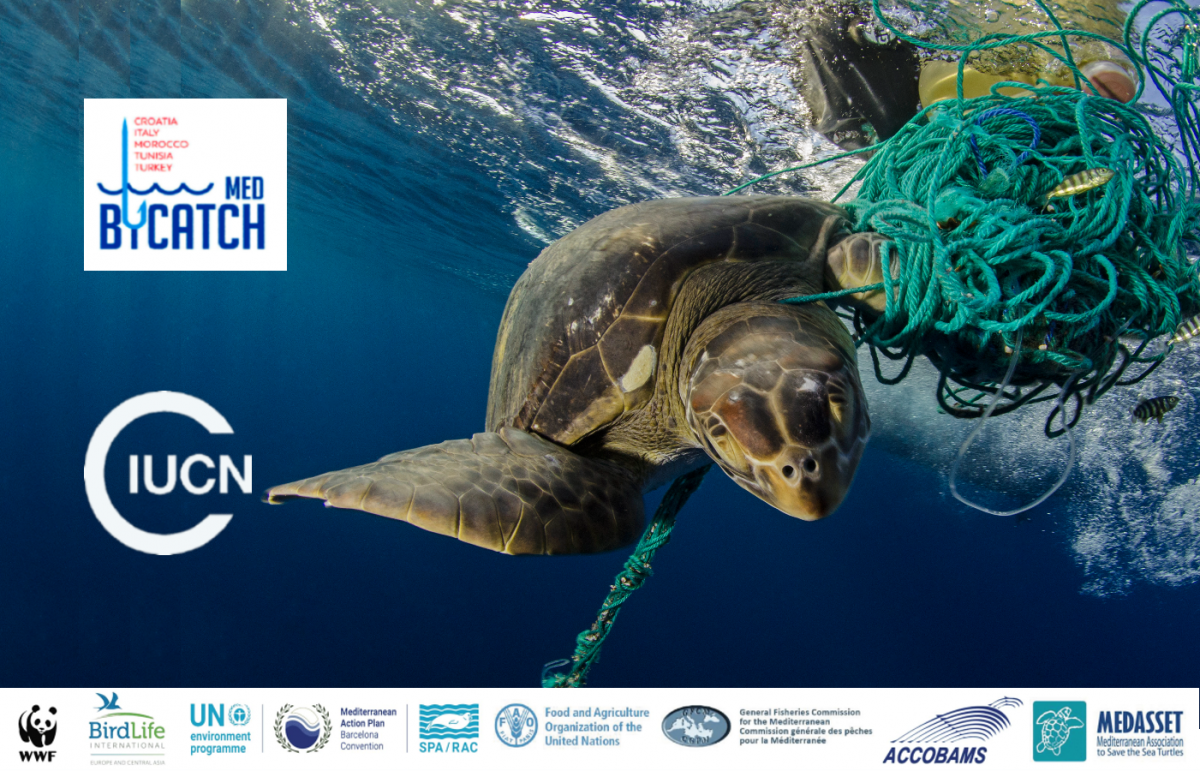UN takes significant step towards a new treaty to conserve marine life beyond boundaries
New York, April 8, 2016.
In response to mounting concerns about declines in ocean health, States at the United Nations (UN) delivered some good news last week. The first of four two-week UN Preparatory Committee sessions concluded on a positive note on Friday April 8, 2016 by identifying key elements for a new treaty to better protect and sustain the marine environment and marine life in the two thirds of the ocean beyond national boundaries and adopted a roadmap for the path ahead. The next session will be convened from 26 August to 9 September 2016.

Photo: © IISD/Francis Dejon
These discussions revealed broad-based agreement on three of the four main topic areas, according to Kristina M Gjerde, Senior High Seas Advisor to IUCN’s Global Marine and Polar Programme. “These included the need for precautionary action to sustain the health of species and ecosystems through networks of marine protected areas; the need to review the impacts of human activities prior to approving them so that measures can be taken to avoid significant adverse harm; and the need to build capacity and share technologies to ensure effective implementation of the agreement.”
Significant progress was also made on the fourth -- and most contentious -- issue: how benefits derived from marine genetic resources from the high seas and the international seabed Area might be shared amongst the global community. According to Hiroko Muraki Gottlieb, Legal Expert at IUCN’s Permanent Observer Mission to the UN in New York, “while differences remain as to whether living marine resources in the high seas and the international seabed Area are or should be part of the ‘common heritage of mankind,’ discussions are now turning to pragmatic approaches as to how and what kind of benefits might be fairly and equitably shared.”
“States also shared in recognizing the importance of enhancing marine scientific research and exchanging information, which can enable developing and developed countries to better manage marine activities and to conserve marine life,” added Hiroko Muraki Gottlieb.
Recommendations for draft elements for a new agreement under the 1982 UN Convention on the Law of the Sea are to be delivered to the UN General Assembly by the end of 2107. Though many tough challenges remain, it is widely hoped that a decision to launch formal negotiations to draft the text of a new treaty based on the PrepCom’s recommendations will be taken by 2018.
At stake is no less that the future health of the global ocean and its role in sustaining and nourishing life on this planet. As revealed in the recent First World Ocean Assessment (see story below), released by the UN in January 2016, the ocean has already absorbed more than 93% of heat generated by increasing CO2 emissions, buffering impacts on land. In the process, however, is it becoming warmer, more acidic and less oxygenated. Such impacts are decreasing the ability of many marine species to find food, reproduce and tolerate the many additional stresses inflicted by overfishing, pollution and habitat degradation. Combined, these changes may threaten ocean productivity, biodiversity and food supplies.
That is why a robust new treaty is essential. “Saving the high seas and international seabed Area is beyond the capacity of any one nation: international cooperation is essential,” says Kristina Gjerde. “Despite some continuing disagreements on principles and priorities, it is hoped that nations can keep the spirit of the 2015 Paris Agreement alive, paving the way for a new treaty that puts the common interests and common concerns of all States and peoples at its heart and central core.”
For more information:
Kristina Gjerde: kgjerde@eip.com.pl; Hiroko Muraki Gottlieb: Hiroko.gottlieb@iucn.org
On IUCN’s role in this process, see “Can the world agree on how to conserve the oceans?” Blog by Lydia Slobodian, Legal Officer, IUCN: https://portals.iucn.org/blog/
For IUCN position papers, policy briefs, statements and a Matrix of Suggestions for the new agreement: https://www.iucn.org/about/work/programmes/environmental_law/elp_work/elp_work_issues/elp_work_biodiv/elc_marine_biodiversity/



